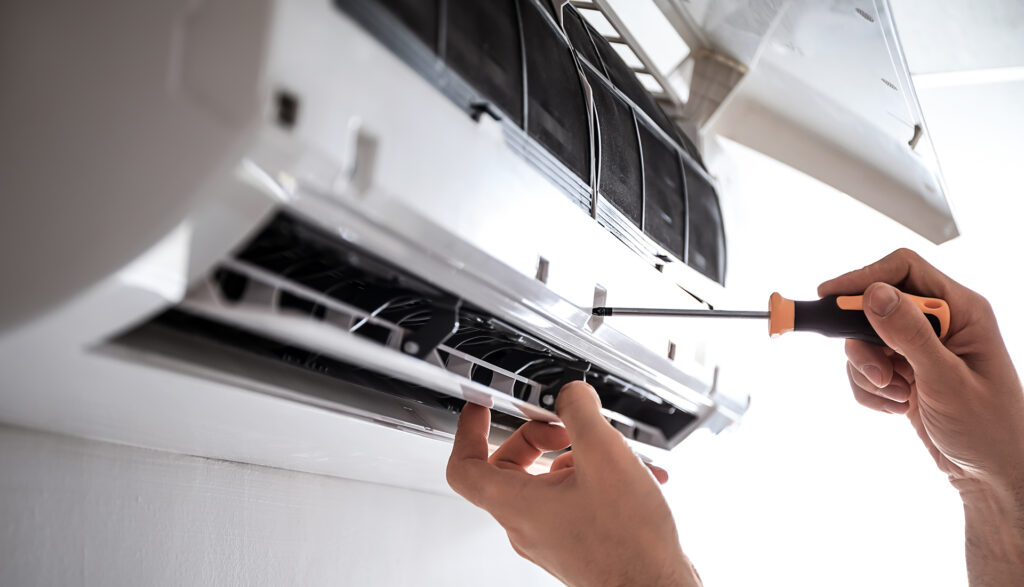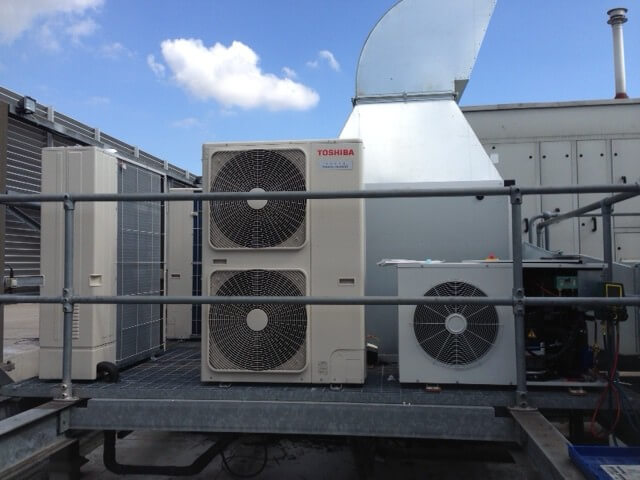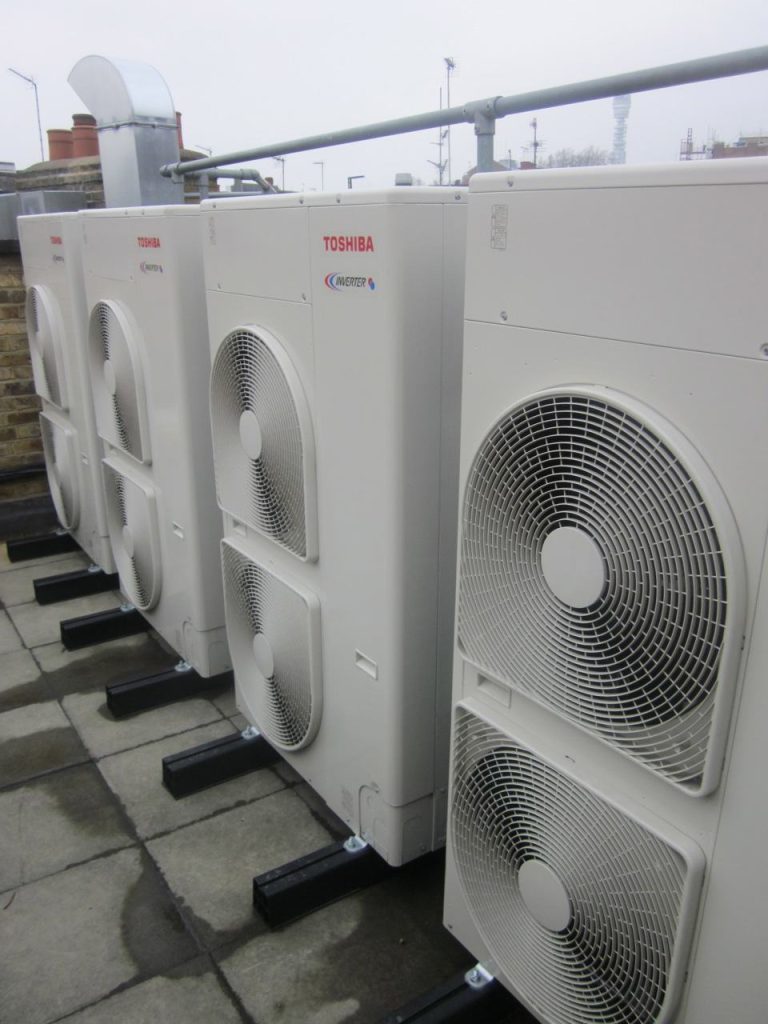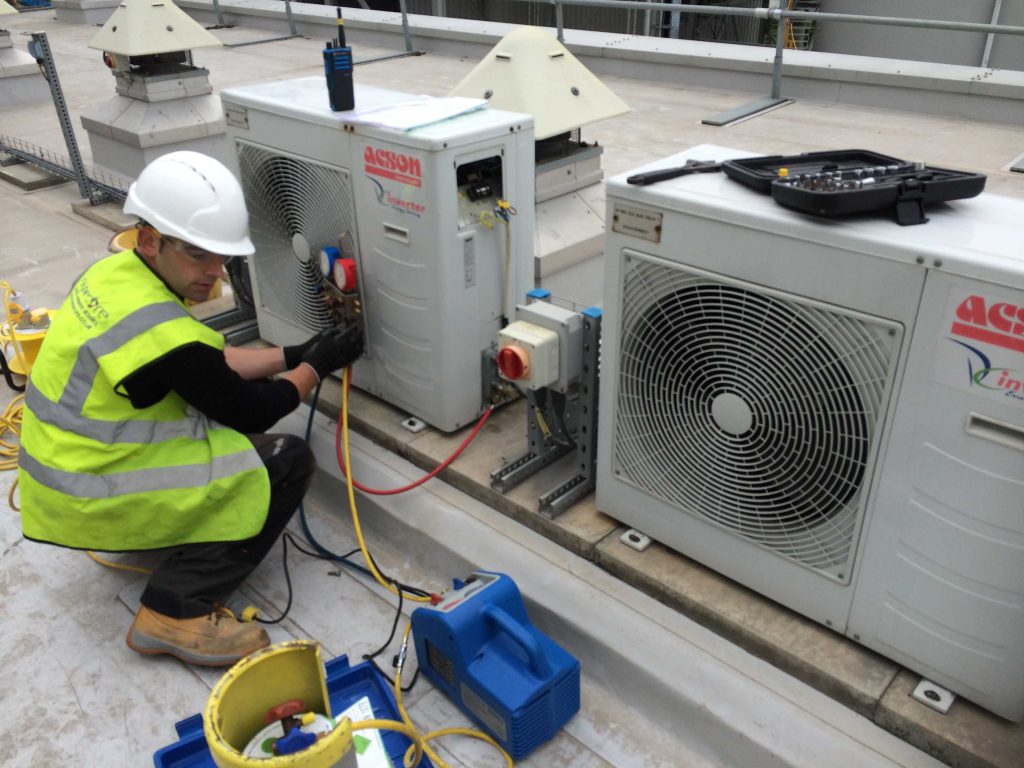Feel All Warm and Fuzzy Inside With A Heat Pump

Estimated reading time 10 minutes
In a previous article “Heat Pumps Upgrade Scheme Shows Continued Growth” we looked at the UK government’s drive to encourage homeowners to make the move to heat pumps to make their properties “warmer, smarter and more energy efficient” through their “Welcome Home Energy Efficiency” campaign on TV, Facebook, and other ad platforms. In the last few weeks you may have noticed that the government’s Department for Energy Security and Net Zero (DESNZ) has stepped up its heat pumps campaign again across multiple platforms with a new ad called “Feel All Warm and Fuzzy Inside”, part of the Boiler Upgrade Scheme (BUS), which states “Doing work on your home? It’s the perfect time to upgrade your boiler to a heat pump with a £7,500 government grant.”
Aims Of The BUS
The overall aim of the BUS is to meet “the UK's target of reducing emissions to net zero by 2050” where “virtually all heating of buildings will need to be decarbonised.” One of the ways the government is doing this is by incentivising the deployment of low carbon heating technologies by providing an upfront capital grant towards the cost of an installation of an air source heat pump (ASHP), a ground source heat pump (GSHP) and, in limited circumstances, a biomass boiler.
The History Of The BUS
The BUS was launched in England and Wales on 1 April 2022. Voucher applications opened on 23 May 2022. Funding of £450 million was provided to 2025. This has since been extended to 2028. In December 2024 the Warm Home Plan was announced and an extra £30 million became available for the Boiler Upgrade Scheme for 2024/25, and £295 million for 2025/26. In January 2025 an additional £25 million of funding was made available.
When the scheme launched grants for an Air Source Heat Pump (ASHP), or biomass boiler were £5,000 and £6,000 for a Ground Source Heat Pump (GSHP). From 23 October 2023 grants for ASHPs and GSHPs increased to £7,500.
In summer 2023 a consultation was held to look for ways to amend the scheme to encourage a greater uptake of low carbon heat systems. As a consequence of the consultation a number of changes were made to the scheme including: removing the scheme eligibility requirement to have no outstanding recommendations for loft and cavity wall insulation on the property's Energy Performance certificate (EPC); future-proof the regulations by differentiating grant levels for properties off the gas grid and self-build properties and introduce biomass boilers with an integrated cooking function as newly eligible for support.
The capacity of systems was also reviewed, and it was decided that shared ground loops would be increased to 300kW to help make ground source heat pumps more financially viable. The capacity limit for individual systems on a shared ground loop remains at 45kW. These changes came into force on 8 May 2024.
How BUS Works
The BUS is installer led. The installer submits a voucher application for the grant on behalf of the property owner. Ofgem contacts the property owner and carries out checks to confirm that the property is eligible. If the property meets the eligibility requirements a voucher is issued on a first come first served basis until the budget cap for the financial year is reached.
ASHP and biomass boiler vouchers are valid for 3 months while GSHP vouchers are valid for 6 months. The voucher can be redeemed when an installer completes an installation and submits a voucher redemption application which is subsequently approved by Ofgem. If approved, the grant is then paid directly to the installer. The price paid by the property owner is the total cost less the grant value.
What Is The Uptake Of The BUS?
The latest figures regarding the total value of all grants paid is published by Ofgem. The published figures on 11 March 2025 covering the period from 23 May 2022 to 28 February 2025 showed the total number of voucher applications received was 72,263 and the number of BUS vouchers issued was 51,501 to a total value of £345,949,000. Of these 46,707 applications were redeemed to a value of £310,026,500.
The government also provide BUS statistics which are updated on a monthly basis. In January 2025 the total number of applications saw a 29% increase on the previous month and were 79% higher than January 2024. The majority of these were for grants for ASHP installations (97%). January 2025 had the second highest number of applications since the scheme began. To the end of January 2025 there was a 19% increase on the numbers of vouchers issued on the previous month and 85% higher than same month in the previous year. January 2025 had the second highest number of vouchers issued since the scheme began.
The regional breakdown for grants paid shows the largest number were for installations at properties in the South East (8,803; 20%), followed by the South West (8,018; 18%).
Of the total installations of BUS grants paid up to the end of January 2025, the largest proportion (52%) replaced gas systems, followed by oil (19%) and then properties which did not previously have a heating system at all (16%). Redemptions for replacing gas systems has grown fastest since April 2024, increasing from 47% of redemptions (May 2024 statistical release) to 52% in January 2025.
The average cost of an ASHP and GSHP since the start of the scheme has been £12,927 and £25,000, respectively (including the grant value). The average cost of a shared ground loop GSHP was £18,945.
Is A Heat Pump Right For My Home?
In an effort to understand how feasible a mass rollout of heat pumps into UK homes would be, in terms of technical and practical feasibility, the DESNZ led by Catapult Energy Systems funded and launched the Electrification of Heat Demonstration Project. 742 heat pumps were installed in a comprehensive range of housing types. from Victorian mid-terraces to pre-WWII semis and a 1960s block of flats; 41% detached, 43% semi-detached, 11% mid-terrace, 6% flats and 68% pre-1980.
The project proved that a large-scale rollout of heat pumps was possible within the UK and that heat pumps can be successfully installed in homes from every style and era. It also showed that heat pumps can “operate with good efficiency and provide positive consumer heating experiences.”
The most suitable kind of heat pump for your home will depend on your budget and the amount of available space you have.
Air source heat pumps installed in UK homes are relatively small, typically in the range in size from 1-1.5 m in height and 0.5-1 m in width, which is roughly the size of a washing machine, so don’t require a great deal of outside space. Ground source heat pumps are better suited to homes with a large outdoor area that allows for the installation of a loop of underground pipes. Ground source heat pumps tend to be more energy efficient but are more expensive to install.
Space is required for a hot water cylinder. You may also have to change your radiators to ones with a larger surface area as heat pumps operate at a lower temperature and need a larger surface area to effectively transfer heat. Although not strictly necessary underfloor heating can be more energy efficient when used with a heat pump. Heat pumps, like other heating systems are cheaper to operate in homes that are insulated and draught proofed.
If you live in a smaller property an air-to-air heat pump may be a better option. Air-to-air heat pumps heat your home using fans rather than radiators or underfloor heating.
The government have provided a heat pump checker tool which allows you to check if a heat pump is suitable for your home. The tool will ask you when your home was built, if it has any insulation in the outer walls or roof, whether it has single, double or triple glazed windows and how many bedrooms it has.
Heat Pump Benefits
Replacing a conventional boiler with a heat pump can bring with it many benefits including a reduction in energy usage, reduced carbon emissions, increased equipment life, less maintenance, no need for fuel storage and government grants.
Reduced Energy Usage
Heat pumps are three to four times more energy efficient than a traditional gas boiler. As a result, energy bills are more likely to be lower when compared to oil, LPG, or electric heating. There are also savings to be made by using smart tariffs which have cheaper off-peak rates.
According to the Energy Savings Trust “with a heat pump, for every unit of electricity you use, you can get three to four times as much heat (300 to 400%) in return. Compare that to a gas or oil boiler. An A-rated boiler should convert 90% of its fuel into usable heat—meaning some of what you pay for is lost. That’s why a heat pump can be a much more efficient way to heat your home.“
Reduced Carbon Emissions
Heat pumps use a third to a quarter of the energy needed compared to a gas boiler and as a consequence they produce less carbon emissions. Heat pumps can also be powered by solar panels to utilise renewable, sustainable green energy reducing your carbon footprint even lower. Up to 65% or more carbon savings can be made compared to a gas boiler.
Increased Equipment Life
A gas boiler will typically last around 10-15 years with maintenance. An air source heat pump will typically last around 15- 25 years. A ground source heat pump can have an even longer lifespan lasting over 25 years.
Less Maintenance
Gas boilers are recommended to have an annual maintenance to ensure they continue to work efficiently. Heat pumps are designed with fewer moving parts and function at lower temperatures which leads to less wear and tear and a lower maintenance requirement of around 3-5 years.
No Need For Fuel Storage
Having a heat pump means that where a property used oil or LPG there is no longer a need to deal with fuel deliveries or have a space to store fuel.
Government Grants
The government is offering grants of £7,500 towards the cost of a heat pump to properties across England and Wales through the BUS. Until 31 March 2027, the installation of energy-saving materials, including heat pumps and biomass boilers, in residential accommodation in the UK is subject to a 0% VAT rate.
Homeowners can also get support to improve their property’s energy efficiency through the Great British Insulation Scheme (scheduled to end in April 2026) and Energy Company Obligation (ECO) (until 31 March 2026) which are government energy-efficiency schemes administered by Ofgem, designed to deliver improvements to the least energy-efficient homes to tackle fuel poverty and reduce carbon emissions.
An Investment In The Future
A heat pump is an investment in your home which provides your property with the latest technology and heating innovations.
It’s important to note that although the UK government has scrapped the plans to phase out new gas boiler installations by 2035 it’s still looking to reduce carbon emissions and achieve net-zero targets by 2050. As a consequence, it’s likely that the government will continue to exert pressure on homes to move away from new gas boiler installs to more energy efficient heat pump installs.
Expert Home Air Conditioning and Heat Pump Advice and Support
Synecore is a home air conditioning and heat pump installation expert in Kent, London, Surrey, Sussex, Essex. We provide installation of high-quality products from leading manufacturers. We offer the best solutions for your home air conditioning installation. There are many affordable options available to homeowners, helping you keep your energy bills down, while having a positive impact on the environment.
At Synecore, we have the means to offer a turnkey heat pump design and installation service. It’s worth noting that Synecore offers both design and installation, both of which are critical to the effectiveness of your new heating system, but not all contractors have the in-house facilities to offer both.
We also offer our customers value and long-term warranties on all heat pump installations for complete peace of mind.
Synecore’s air conditioning experts will complete a survey of your home to determine the current space and discuss your specific needs. To book a free home air conditioning installation survey, please speak to our team on 01795 509 509 or via our contact form.



